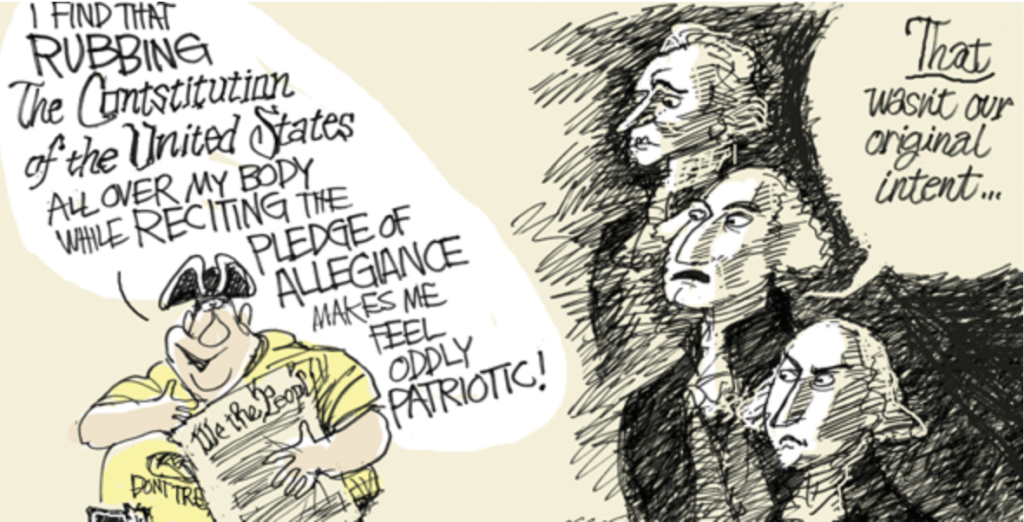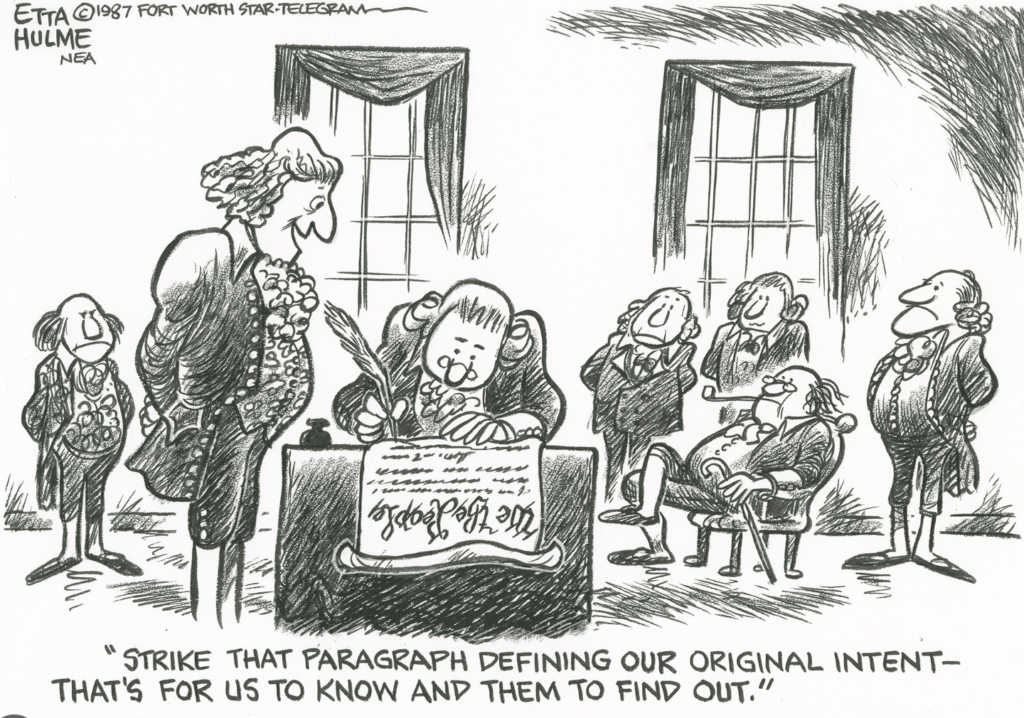We have been hearing a great deal about Original Intent, the idea that the beliefs of the men who founded the United States of America nearly 250 years ago should govern the way we live in a completely different world.
We’re told that men like George Washington, Thomas Jefferson, James Madison and the others should be considered Secular Jesuses (Jesi?) and their words as infallible as any written in the Bible.
There’s one thing we ought to consider that never seems to be considered.
Original Intent is a crock of shit.
America became what it was at its peak by dumping original intent and moving past it.

Let’s start with the men who first settled America.
Most of them were from England, and almost without exception, they were not the cream of anyone’s crop. In the 17th and 18th centuries, the laws in England were based on primogeniture. In families of wealth with more than one son, wealth and nobility passed from the father to the eldest son.
Without exception.
Second sons and others often found their calling in the military, and any wealth that came to them did so through the generosity of their older brother. The modern-day song “You’re in the Army Now” told recruits that “you’ll never get rich digging a ditch” and that was true even then.
The sons who emigrated to the New World were often third or fourth sons who weren’t going to be anything more than mediocre staying in England.
So we probably ought to realize that the fathers and grandfathers of the men who founded America were swimming in the shallow end of the gene pool.
Then let’s consider two of the chief areas of beliefs these men had.
We’re told that one of the main reasons Massachusetts and most of New England were settled was religious freedom.
Baloney.
The Puritans who settled in America in the early 17th century believed in their right to practice their own religion, and anyone who wanted to get along with them had better practice that same religion. Period.
In fact, the Puritans expelled people from the colony who didn’t toe the line spiritually. Perhaps the most famous of those was Roger Williams, who founded what would become the state of Rhode Island on the principles of religions freedom, separation of church and state andfair dealings with the Indians.
Williams actually purchased the land that would become Rhode Island from the Narragansett Indians. He also founded what would become the first Baptist Church in America.
So religious freedom wasn’t a big goal of a lot of Americans, just as it isn’t today.
The second thing that many early Americans believed in was chattel slavery. This was predominantly true in the south, where the. first slave ships brought Africans to be sold into slavery to Virginia in 1619. Americans who believed they should be allowed to own slaves even used Biblical justification for their evil purpose.
Eleven different presidents owned slaves, including all the ones who would be considered Founding Fathers except John Adams. Perhaps the greatest irony was that Thomas Jefferson, who wrote that “all men are created equal,” owned as many as 600 slaves at sone point in his life.
Yes, many of the Founders hated slavery and spoke against it. But they allowed it to exist as a compromise to create the country.

Those two things alone — religious freedom and slavery — ought to be enough to eliminate Original Intent as anything worth considering. But there’s a third thing that is strike three for the Founders.
Indians, or more accurately Native Americans.
The only significant mention of the people who were here before we were is in Article 1, Section 8 of the Constitution, where Congress is granted “the power to regulate Commerce with foreign nations and among the several states, and with the Indian tribes.”
Of course, the 18th century was a time when the strong kicked the crap out of the weak all over the world, but that’s just another reason Original Intent ought to be buried in a deep grave.
By the way, we haven’t even mentioned women yet.
Or the way so much of our government is shaped to protect great wealth.
Time to stop living in the 18th century and deal with the modern world.
